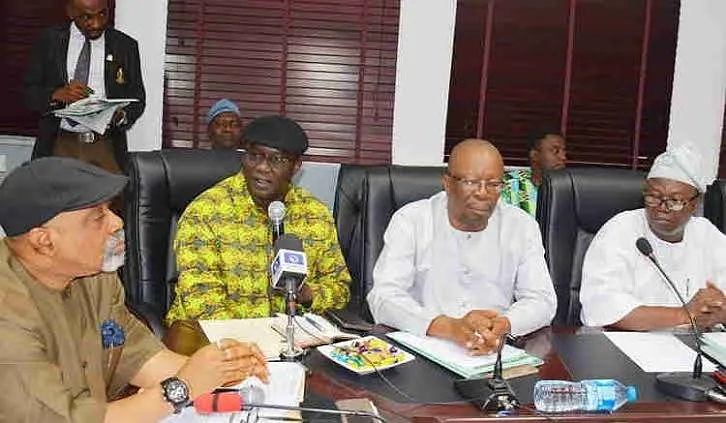There seems to be no end in sight to the industrial action embarked upon by the Academic Staff Union of Universities (ASUU). The trade feud that reared its ugly head on February 14 has, till date, persisted. Hopes for the cessation of the hostility that is threatening to destroy ASUU itself were dashed recently when the union it moved up to the next level as an indefinite strike.
It is instructive to note that the striking lecturers’ demands include, funding for the revitalisation of public universities, Earned Academic Allowances, University Transparency Accountability Solution (UTAS), and promotion arrears. Others are the renegotiation of the 2009 ASUU-FG Agreement and the inconsistency in the Integrated Personnel Payroll Information System (IPPIS).
However, the federal government said that it has addressed 80 percent of the union’s demands, noting that the extension of the strike was unreasonable. The Federal Ministry of Education, speaking through its Director of Press and Public Relations, Bem Goong, said:” If you bring some demands and almost 80 per cent have been attended to, there is no need to drag the strike anymore.”
According to him, “It is unreasonable for the strike to be lingering since the government has worked towards fulfilling most of the demands.”
Similarly, minister of Education, Adamu Adamu in a meeting with Vice Chancellors and Pro-Chancellors of federal universities at the National Universities Commission (NUC) headquarters in Abuja said the federal government has done all it could do about the ASUU strike, noting that the meeting was to share the details of what government has done and what remains to be done.
He stated that the main challenge in fulfilling ASUU’s demands has been the dwindling resources available to address all the concerns of the citizenry. Indeed, one of the contentious issues of late is the no- work- no pay stand adopted by the federal government.
End In Sight For ASUU Strike As Federal Govt Reviews ‘No-work No-pay’ Policy
In the considered opinion of this newspaper, there is enough blame to go around as unreasonable and unacceptable as they are. But the real issue is that both parties must strive to meet themselves half way in the interest of the nation.
Available statistics indicate that Nigerian lecturers have gone on strike 15 times since 1999. The entire period they embarked on such a strike spanned about 50 months. This represents about one-fifth, or 20 percent, of the number of years since the dawn of democracy in Nigeria (1999). This means that for every five years since 1999, Nigerian universities spent one on strike. This has to stop.
Without doubt, funding of the education sector has been beggarly by successive administrations so also is other sectors like health. We argue that there has to be a reordering of priorities so as to bring about the desired change. Still, it is becoming obvious that the resort to strikes by the lecturers at any given opportunity is archaic, primitive and counter-productive.
This newspaper also frowns at the decision of successive administrations to enter into agreements with ASUU and other unions. Agreements they know ab initio that have no intention of fulfilling. Also, the creation of new universities when the present ones are not funded adequately is deceptive.
As we have previously canvassed on this page, tertiary institutions need to think of creative ways of generating revenue instead of waiting for handouts from the governments and tuition fees which will never be enough to run the institutions.
Besides, how do Ivy League universities across the world raise revenue? For instance, Harvard University diversified revenue portfolio relies on three main sources of revenue: education or tuition, sponsored research, and philanthropy.
Harvard had a University-wide surplus of $298 million in the fiscal year 2019, up from $196 million in 2018, according to Harvard’s annual financial report. The largest source of university revenue was distributions from Harvard’s more than $40 billion endowments, which made up 35 percent of total revenue. Tuition, at 22 percent of revenue, and research grants, at 17 percent, were the next-largest revenue sources. Nigerian tertiary institutions can adopt a similar model.
For instance, they can adopt the endowment model. Endowments are a major source of revenue for most tertiary institutions in the world. It is pertinent to note that an endowment is a money that’s invested in a college or university to support its mission. Schools that receive endowments may use this money to fund research projects or to expand aid packages for eligible students. The problem with that in Nigeria will be corruption.
We call on President Muhammadu Buhari to intervene urgently in this lingering strike. The president should personally meet with the striking lecturers and let this issue be resolved once and for all. We insist that both parties should arrive at a middle ground for the sake of the students who are receiving the short end of the stick in the lingering impasse.
As an alternative, we strongly suggest that the government should grant the universities full autonomy. The incessant industrial action in our tertiary institutions just have to stop.





